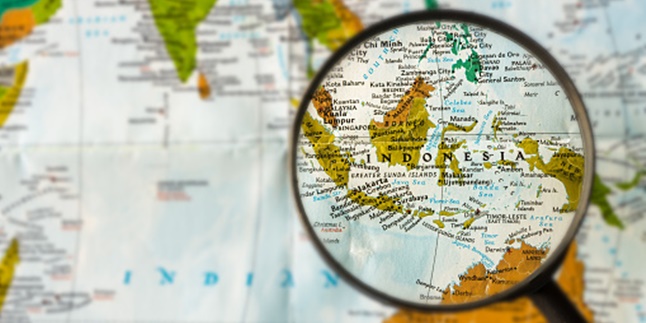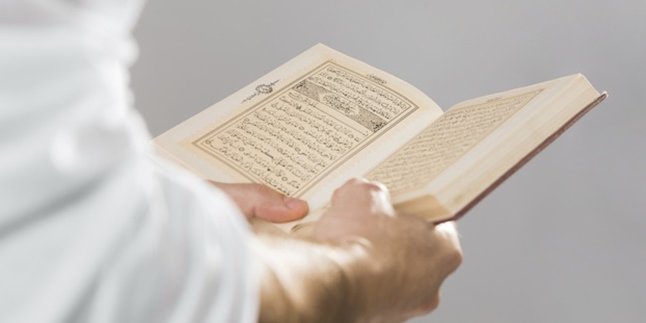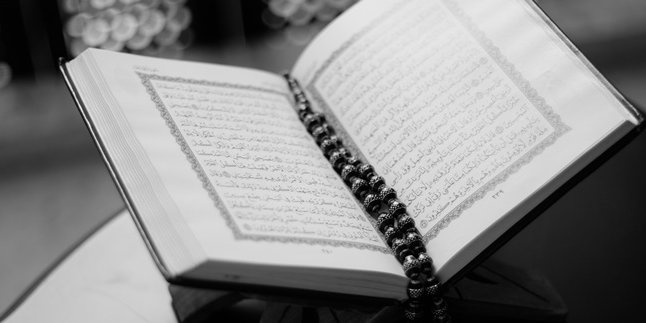Kapanlagi.com - Explain the importance of national awakening for the Indonesian nation is often asked in an exam. It is reasonable, as understanding the meaning of national awakening is something that every citizen should know. As a great nation, Indonesia has a long history. Meanwhile, the moment of national awakening is one of the most important.
However, not all citizens can explain the importance of national awakening for the Indonesian nation. In fact, learning history can be a very enjoyable thing. Learning history can be done as if reading an interesting story. Similarly, with the history of the moment of national awakening that contains many interesting things. What are they?
To better understand the importance of national awakening for the Indonesian nation, let's read the following review that Kapanlagi.com has summarized from various sources.
1. History of National Awakening

(credit: unsplash)
National Awakening Day is commemorated every May 20th. The selection of May 20th is not arbitrary. There is a significant event that led to the designation of May 20th as National Awakening Day. Therefore, to explain the importance of national awakening for the Indonesian people, we first need to understand its history.
Previously, the designation of May 20th as National Awakening Day was directly established by President Soekarno. The first commemoration of National Awakening Day was held on May 20th, 1948. At that time, President Soekarno led the commemoration of National Awakening Day in Yogyakarta. However, at that time, National Awakening Day was still called National Awakening Day.
May 20th was chosen as National Awakening Day because it coincided with the establishment of the Budi Utomo organization in 1908. The selection of the moment of the establishment of Budi Utomo as National Awakening Day was also not without reason.
Budi Utomo is considered to have brought about a change in the Indonesian struggle for independence. From the initial struggle for Indonesian independence through battles, Budi Utomo initiated the diplomatic path. In addition, Budi Utomo also became the pioneer of the establishment of other organizations, such as Sarekat Islam, the Indonesian Association, the Indische Party, Muhammadiyah, and so on.
2. National Awakening Figures and Their Roles
The history of National Awakening Day is not only about the background of the date selection. In addition, there are also figures who played a role in the National Awakening moment. Therefore, in order to explain the importance of national awakening for the Indonesian nation, it is important to know the following figures and their roles. Here are some of these figures.
1. Wahidin Sudirohusodo
A medical school graduate who later led the editorial board of the Retnodhoemilah newspaper. Through the newspaper, Wahidin Sudirohutomo spread his ideas about awakening in terms of education, nationalism, character, equality, and so on. Wahidin Sudirohusodo then met Sutomo and founded Budi Utomo.
2. Sutomo
Sutomo was one of the STOVIA students who actively spread nationalist ideas in Java. Sutomo was also one of the initiators of the establishment of Budi Utomo.
3. HOS Tjokroaminoto
HOS Tjokroaminoto was one of the pioneers of the labor union movement in Indonesia. HOS Tjokroaminoto was also vocal in introducing political ideas. HOS Tjokroaminoto then joined the Islamic Trading Association which had been founded by Haji Samanhudi in 1911.
4. Douwes Dekker
Douwes Dekker was a Dutch-Indonesian figure of the struggle, known as the founder of the national organization Indische Partij (IP) in 1912 along with Ki Hajar Dewantoro and Cipto Mangunkusumo, who later became known as the Tiga Serangkai (Three Musketeers).
5. Ki Hajar Dewantoro
As mentioned earlier, together with Douwes Dekker and Cipto Mangunkusumo, Ki Hajar Dewantoro founded the Indische Partij (IP). Sutomo
Sutomo is one of the STOVIA students who actively spread nationalism in Java. Sutomo is also one of the initiators of the establishment of Budi Utomo.
3. HOS Tjokroaminoto
HOS Tjokroaminoto is one of the pioneers of the labor movement in Indonesia. HOS Tjokroaminoto is also outspoken in formulating political ideas. HOS Tjokroaminoto then joined the Islamic Trade Union which had been established by Haji Samanhudi in 1911.
4. Douwes Dekker
Douwes Dekker is a figure in the struggle of Dutch-Indonesian descent, known as the founder of the national organization Indische Partij (IP) in 1912 together with Ki Hajar Dewantoro and Cipto Mangunkusumo, who later became known as Tiga Serangkai.
5. Ki Hajar Dewantoro
As previously mentioned, together with Douwes Dekker and Cipto Mangunkusumo, Ki Hajar Dewantoro established the Indische Partij (IP). Ki Hajar Dewantoro was also active in criticizing the Dutch. To this day, he is known as the Father of Indonesian Education.
6. Cipto Mangunkusumo
Cipto Mangunkusumo began his career as a doctor. As part of the Tiga Serangkai, Cipto Mangunkusumo helped found the Indische Partij (IP). Like Ki Hajar Dewantoro, Cipto Mangunkusumo was also quite vocal in his criticism of the Dutch.
3. The Significance of National Awakening for the Indonesian Nation

(credit: unsplash)
National Awakening Day is not only a symbol of a change in the style of struggle in Indonesia. On the contrary, the National Awakening brought by Budi Utomo also united the diverse Indonesian community in terms of class, religion, and ethnicity. Therefore, in other words, explain the importance of national awakening for the Indonesian nation, which is closely related to unity.
In addition to unity, the National Awakening also awakens nationalism in the souls of the Indonesian people. Thus, the spirit of the Indonesian people in the struggle can be more united. Without Budi Utomo, the Indonesian community with diverse regional, religious, and ethnic interests would not have been united.
Budi Utomo also made the Indonesian people more motivated to achieve independence from the Netherlands in a more maximal way. Not only through battles, but also through diplomacy. This indirectly also encouraged the Indonesian people to be more aware of education.
4. Implementation of the Meaning of National Awakening in Modern Life

(credit: unsplash)
Not only through an annual commemoration, National Awakening can also be implemented in daily life. However, to implement these values, we need to explain the meaning of nationalism for the Indonesian nation. Here are some implementations of the meaning of National Awakening in daily life.
1. National Awakening can be a motivation to rise from adversity and reach future success.
2. National Awakening can be a motivation to improve skills that may be needed in the future.
3. National Awakening can be a valuable lesson on how important it is to strive as much as possible.
Those are some explanations of the meaning of nationalism for the Indonesian nation. Hopefully, it can be useful and increase knowledge.
(kpl/gen/psp)
Disclaimer: This translation from Bahasa Indonesia to English has been generated by Artificial Intelligence.















